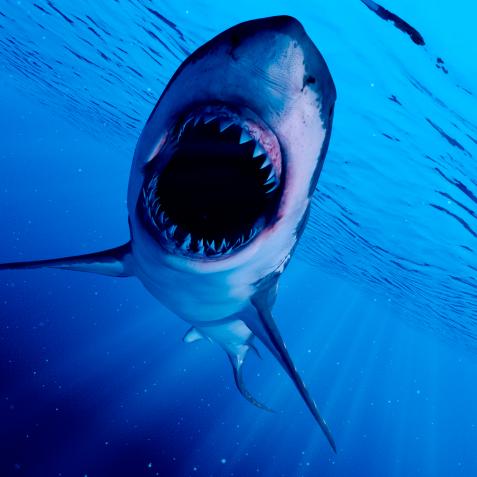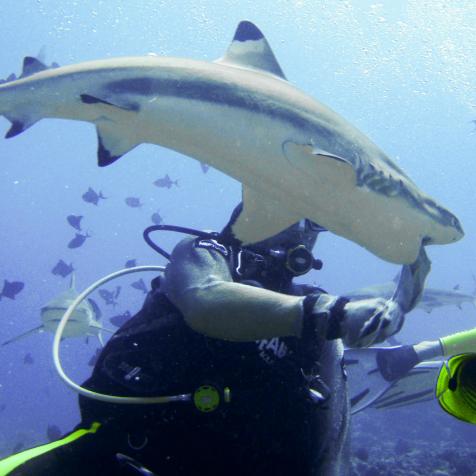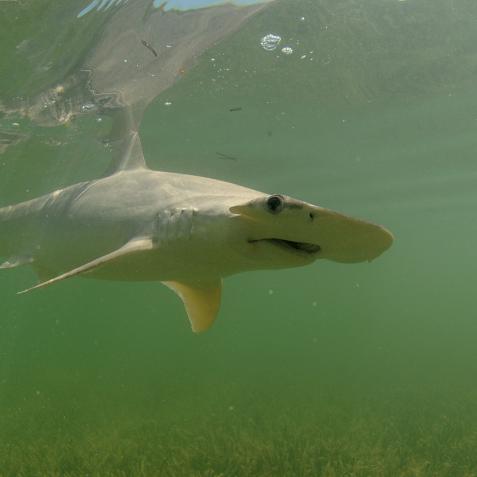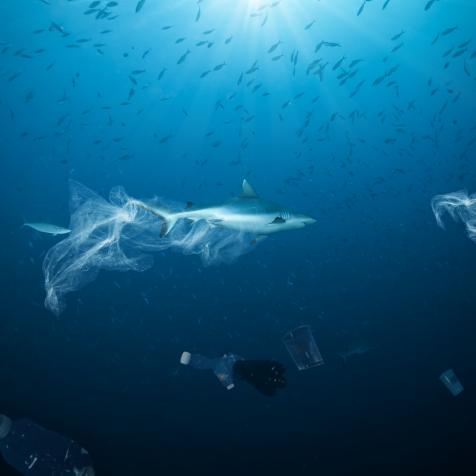
Stephen Frink
Sharks are Nearly Extinct in the World's Reefs
Sharks are “too rare to fulfill their normal role in the ecosystem” according to a new study, and have become “functionally extinct” in one of five of the world’s coral reefs.
The study, conducted by Global FinPrint and published in the scientific journal Nature, surveyed 371 reefs in 58 countries.
Sharks were not found on 19% of the reefs, which indicated a “widespread decline that has gone undocumented on this scale until now”, Global FinPrint, a collaboration started by marine biologists Mike Heithaus and Demian Chapman, said.
Global Check-Up
The Dominican Republic, Kenya, Vietnam, Qatar, and the French West Indies are just some of the regions that are essentially devoid of sharks. In 800 hours of observing those nations, just three sharks were spotted.
The group focused on reef sharks, because they are easier to spot than the species in the high seas.

Stephen Frink
Destructive fishing practices, as a result of dense populations and poor management, were attributed to being one of the main factors involved in species loss.
"Although our study shows substantial negative human impacts on reef shark populations, it's clear the central problem exists in the intersection between high human population densities, destructive fishing practices, and poor governance," according to Demian Chapman, Global FinPrint co-lead and associate professor in the Department of Biological Sciences and Institute of Environment at Florida International University. "We found that robust shark populations can exist alongside people when those people have the will, the means, and a plan to take conservation action."
The research started in 2015, using underwater video cameras strapped to 1.5-meter-long poles, which had been baited and placed in reef ecosystems across the Western Atlantic, Western Indian Ocean, Indo-Pacific, and Pacific regions.
The Proof is in The Pictures
More than 15,000 hours of video footage was captured over the study period, which lasted for four years. More than 700 students helped out review the footage but Heithaus’ mother studied the most - 1,721 hours worth.
"These nations are seeing more sharks in their waters because they have demonstrated good governance on this issue," Aaron MacNeil, lead author of the Global FinPrint study and associate professor at Dalhousie University, said. "From restricting certain gear types and setting catch limits, to national-scale bans on catches and trade, we now have a clear picture of what can be done to limit catches of reef sharks throughout the tropics."
More About Sharks
Epic Shark Week Moments in Photos 23 Photos
This year, we traveled from Australia and New Zealand to South Africa and the Caribbean in search of the world's most incredible shark stories. Look back at Shark Week in action with some incredible photography. Think breaches, underwater moments, and more.
There's Still A Lot You Don't Know About Sharks 12 Videos
From fintastic facts to jawsome discoveries, this is everything you need to know about the apex predators you know and love, sharks.
This is What is Killing Sharks
Despite sharks sitting at the top of their food chain as an apex predator, they are an endangered species as a result of human activities.
Sharks are especially vulnerable to overfishing as they grow so gradually and don’t have many offspring, and demand for shark fins has grown.
“This study is a tour de force,” Nick Dulvy, a conservation biologist at Simon Fraser University, told Science.
“We really need to substantively move toward conservation and recovery in the next decade, or else we’re going to be in real trouble.”





















